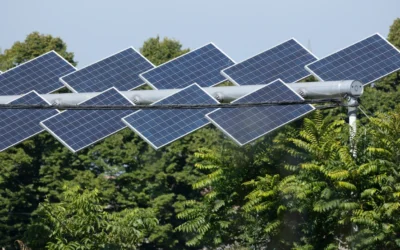A groundbreaking water purification device could potentially transform hydroponic farming and enhance agricultural sustainability in response to climate change. It is being developed by a team at the University of Canterbury in New Zealand.
Led by Professor Alex Yip from the University’s Chemical and Process Engineering Department, this project aims to address the pressing need for clean water in hydroponic systems, which are increasingly vital as global agriculture adapts to environmental challenges.
The innovative photoelectrochemical water treatment device promises to provide an efficient, low-cost solution for removing harmful micropollutants from water, a critical requirement for maintaining the viability of hydroponic crops. These pollutants, which include pesticides, endocrine-disrupting chemicals, and persistent organic compounds, can accumulate in plants, especially in closed, recirculating water systems typically used in hydroponics.
One of the device’s standout features is its reliance on solar energy. By harnessing sunlight during the day to convert into chemical energy, the system can effectively remove contaminants without heavy dependence on electricity. If sunlight is unavailable due to night-time or unfavourable weather conditions, the device seamlessly switches to an electrical system to continue its operations. This dual-power capability ensures robustness and adaptability, making it particularly beneficial for regions where access to clean water is limited.
The project’s reach extends to broader food security and environmental goals, as highlighted by Professor Yip. By facilitating more sustainable urban farming methods, such as hydroponic cultivation in city centres or even high-rise buildings, the technology could significantly reduce the carbon emissions associated with transporting food over long distances. Additionally, it allows for year-round cultivation of crops, circumventing traditional seasonal constraints.
The research team comprises two doctoral candidates, Chunyan Zeng and Vicky Tsui, the latter supported by the Joint Postgraduate School Food Transitions 2050 initiative. They have successfully tested the device within controlled laboratory settings and are currently validating its effectiveness in real-world hydroponic systems.
With potential applications beyond commercial farming, the device may soon be available for household use, offering an advanced alternative or complement to traditional water filters. Unlike standard filters, the device targets soluble micropollutants, which often escape conventional purification methods.
Looking ahead, the team is preparing to seek additional funding from government entities or private investors to scale up production following successful testing. Professor Yip is optimistic about the device’s future availability and affordability, anticipating its international market release within a few years.
As the team progresses toward commercial realisation, this development stands to play a pivotal role in advancing hydroponic farming and, by extension, the resilience and sustainability of global food supplies amid challenging climatic conditions.




